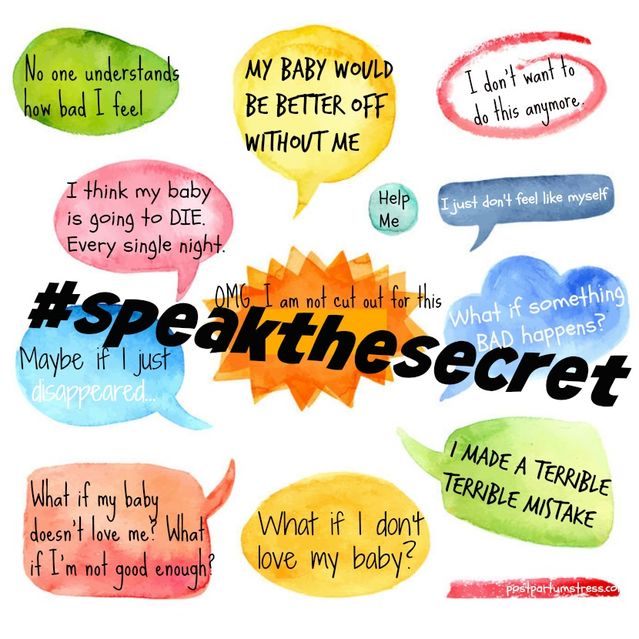Postpartum Depression
Healthcare Providers Continue to Miss the Mark
When cries for help don't help
Posted January 23, 2018

Recent attention to Jessica Porten, her heartbreaking story and the deplorable response to her symptoms, raises an important issue for our #speakthesecret campaign.
Our campaign has successfully helped many moms understand the importance of speaking up on behalf of themselves in order to get the help they need. One of our objectives was to highlight the pervasive nature of scary thoughts during the postpartum period. As the campaign explains:
“Scary Thoughts” is an expression used to encompass any and all categories of upsetting thinking that can interfere with the well-being of a new mother. Scary thoughts refer to negative, repetitive, unwanted and/or intrusive thoughts or images that can bombard you at any time Scary thoughts are anxiety-driven, they are extremely common, and most new mothers admit that have, at some time, imagined or worried about harm coming to their babies. The shame of having these thoughts can prevent women from speaking about them. In response to women telling us they feel isolated and ashamed of their thoughts, we asked women to share their scary thoughts in an attempt to help them express these distressing ruminations, so they can get relief and also help other mothers understand how universal this phenomenon is.
The problem is, once a brave and frightened postpartum mama takes the risk or leap of faith to actually put words to her terrifying symptoms and disclose that she is having thoughts that are scaring her, she must certainly hope with every fiber of her being that she is in a safe place to utter those words; that someone will not humiliate her, judge her harshly, or shame her more than she is undoubtedly already judging and shaming herself.
But the reality is, to a large extent, healthcare providers are misinformed. Let's face it, scary thoughts are symptoms that cause distress for both the mother who experiences them and the healthcare provider trying to take care of her. Acute states of agitation, punctuated with violent, intrusive thoughts are alarming for everyone involved. Admittedly, healthcare providers who may not be in a position to carry out a comprehensive evaluation in order to properly assess the situation may need additional and immediate support to ascertain whether a particular patient is truly experiencing scary thoughts (i.e. negative intrusive thoughts associated with an anxiety disorder) or symptoms of psychosis, which can, in some instances, be difficult to discern without expert training. In some cases, women may be encouraged to go to a local emergency room for an assessment if there is concern about the nature of her thoughts. Or given a referral for a psychiatric evaluation, hopefully, with an expert in this area of treatment. BUT, even so, there is no excuse for healthcare professionals to disregard the obvious and understandable distress of a postpartum woman who is asking for help. Help comes in many forms. For postpartum women in severe distress, it often starts with a healthcare provider taking her seriously, listening carefully to what she is saying and how it is making her feel, and responding to her with careful attention and compassion. This includes making sure the baby is okay and that mom is comfortable and feels safe.
Beyond that, the take-home point is this: OBGYN doctors and nurses, ER doctors and nurses, should all know better by now. They should read up on perinatal mood and anxiety disorders. They should educate themselves about what an obsessive thought looks like, sounds like, acts like. They should no longer be shocked when a postpartum woman discloses she is having scary thoughts. This is a universal phenomenon that is happening to almost all postpartum women, in varying degrees. Women with obsessional thoughts respond well to supportive interventions, as well as, medication and talk therapy. But most of all, they need to know they will be okay and they will not always feel this way.
Maternal mental health is getting more attention now than ever before. Women are listening and believing that they will be listened to when they reveal how they feel and what they need. When we encourage moms to #speakthesecret and talk about their postpartum depression and anxiety, those of us who are informed, hold our collective breaths with the sincere hope that their disclosures and expressions of intense anxiety, will fall upon the ears of providers who know what they are doing and understand how to take care of these symptoms. Only then, will we succeed in sustaining this recent momentum on behalf of pregnant and postpartum women in distress.


